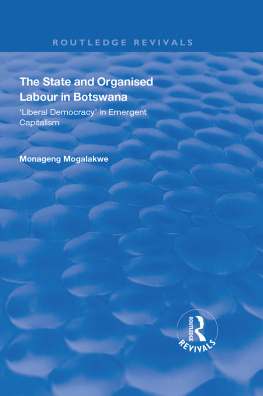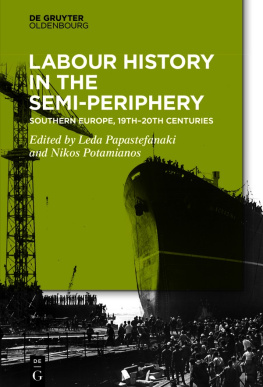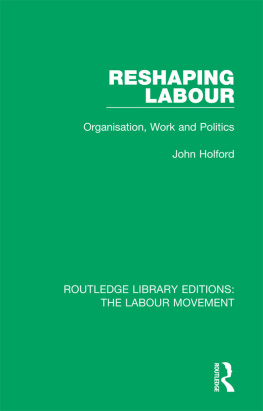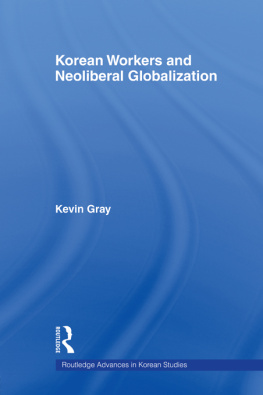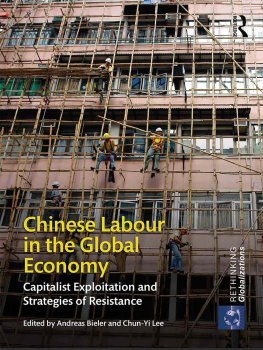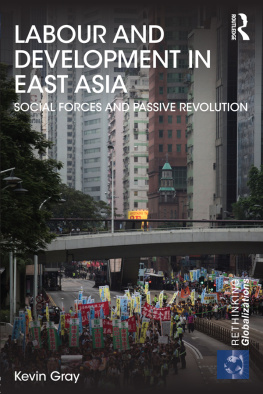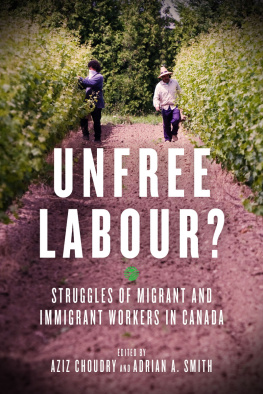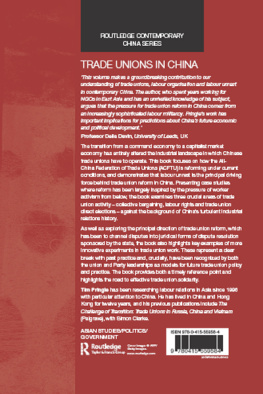THE STATE AND ORGANISED LABOUR IN BOTSWANA
To my mother Nkgoa, and my father Edumile Mogwera,
who died before I could really get to know him.
The Making of Modem Africa
Series Editors: Abebe Zegeye and John Higginson
Oil and Fiscal Federalism in Nigeria
Augustine A. Ikein and Comfort Briggs-Anigboh
Religious Militancy and Self-Assertion
Islam in modern Nigeria Toyin Falola and Matthew Hassan Kukah
An Aristocracy in Political Crisis
The end of indirect rule and the emergence of party politics in the emirates of Northern Nigeria Alhaji Mahmood Yakubu
The Golden Contradiction
A Marxist theory of Gold Farouk Stemmet
Beyond the New Orthodoxy
Africa's debt and development crises in retrospect Nikoi Kote-Nikoi
The State, Violence and Development
The political economy of war in Mozambique, 1975-1992 Mark Chingono
Incomplete Engagement
US foreign policy towards the Republic of South Africa, 1981-1988 Alex Thomson
Rational Economic Decisions and the Current Account in Kenya
Geoffrey Mwau and Jagdish Handa
Urban Agriculture in Zimbabwe
Implications for urban management and poverty Beacon Mb iba
The State and Organised Labour in Botswana
Liberal Democracy in emergent capitalism
MONAGENG MOGALAKWE
First published 1997 by Ashgate Publishing
Reissued 2018 by Routledge
2 Park Square, Milton Park, Abingdon, Oxon, OX14 4RN
711 Third Avenue, New York, NY 10017, USA
Routledge is an imprint of the Taylor & Francis Group, an informa business
Copyright Monageng Mogalakwe 1997
All rights reserved. No part of this book may be reprinted or reproduced or utilised in any form or by any electronic, mechanical, or other means, now known or hereafter invented, including photocopying and recording, or in any information storage or retrieval system, without permission in writing from the publishers.
Notice:
Product or corporate names may be trademarks or registered trademarks, and are used only for identification and explanation without intent to infringe.
Publishers Note
The publisher has gone to great lengths to ensure the quality of this reprint but points out that some imperfections in the original copies may be apparent.
Disclaimer
The publisher has made every effort to trace copyright holders and welcomes correspondence from those they have been unable to contact.
A Library of Congress record exists under LC control number: 97070891
ISBN 13: 978-1-138-36074-7 (hbk)
ISBN 13: 978-0-429-43295-8 (ebk)
Contents
During the course of writing up this book I have incurred debts of gratitude to many people who gave me encouragement, advice, and assistance and criticized this work at various stages of its preparation. These people are too numerous to mention them by name, but my special thanks go to Robert Fine, Peter Gutkind, Robin Cohen, Keith Jeffries, Bojosi Otlhogile, Taufila Nyamadzabo, Lawrence Tshuma and Tetteh Hormeku-Ajei. My special thanks also go to Krassi Petrova who expertly prepared and typeset the book. Frank Youngman painstakingly looked at chapter drafts and made always well informed and constructive comments. However, I take the sole responsibility for shortcomings. I would also like to thank my employer, the University of Botswana, for the financial support. Last but not least, my thanks go to my daughters Bothepha and Segopodiso and their mother Koketso who endured with fortitude many hours of my absence.
The thesis of this book is that even in a formally liberal democratic country, the imperatives of economic growth and development in a capitalist context give rise to the states close supervision and control of organised labour. This constitutes a repressive structure of social relations that is maintained by the state through the exercise of political power and legitimated through an ideology of national interest. The corollary of this argument is that these structures of repression only set limitations to working class actions; they do not prevent them. My starting point is that the motive force of history is constituted primarily by changes in the modes of production, the consequent division of society into distinct classes, and the struggles of these classes against one another.
The repressive structures of social relations are, however, historically specific and contingent upon the balance of various social forces. Marx (1968a) pointed out that people make their own history, although they do not make it as they please but under circumstances directly encountered, given and transmitted by the past. Following Marx, it can be argued that even within those structural limits, some amount of economic and political struggle is possible. That is to say, there exists an area of choice in the structure of social relationships, even if this choice can occur only within definite limits. Moreover, these limits tend to relax as the level of technical and economic development rises and the working class increases its social weight (Hyman, 1975; Fine, 1991).
The repressive structures of social relations constitute forms of labour control by the state on behalf of capital, whilst industrial action in its various forms constitutes resistance to the capitalist control of the labour process. As Crisp (1984) argues, following Marx, labour control and labour resistance are integral and inseparable features of the capitalist mode of production; they presuppose the existence of each other, condition the existence of each other, and reciprocally bring forth each other. Central to my analysis is the dialectical relationship between structure and agency, and a recognition that social structures are transformable through the actions of actors caught up in those structures.
The state-labour relation is interactive: the state influences the labour movement by imposing political limits upon it, but the labour movement in turn influences the state by its struggles from below. In a class divided society in which the means of production are largely in the hands of certain individuals, there is bound to be a clash of interests between the class that owns the means of production and those who only own their labour power. In this type of society, the state comes to rely on the taxes and revenues from the economically dominant classes to the extent that the state becomes indebted to this class or alliance of classes. Because of this relationship, the state tries to sustain this type of social order by declaring universal legitimacy of the narrow interests of this class, and by representing its interests as the common interests of all members of society (Marx and Engels, 1970, p. 65).
The form in which particular class interests are presented as the general interests of society is through the ideology of nationalism. The prevalent ideological forms are those of "national interest" and "national development". Ideology is used in this context to refer to a particular form of human thinking that conceals class contradictions of society in metaphysical abstractions, and tends to present the society as a harmonious entity (Billig, 1982, p. 32).

